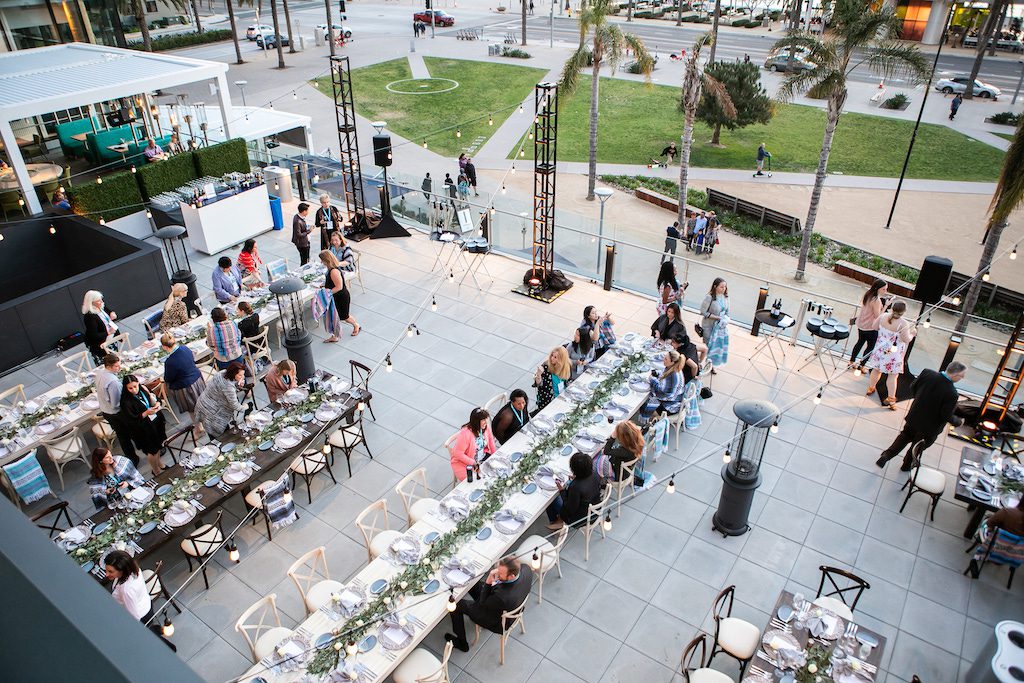Skift Take
Reducing food waste and environmental impacts are proving to be difficult for meeting planners. The sector's antiquated way of doing business is holding up progress at a moment when widespread change is necessary.
There is a big push for events to become more sustainable and better reflect the values of attendees while reducing the environmental impact that events can have on a destination.
Meeting planners expect sustainability to be a top focus for venues in coming years, but ingrained event practices make progress slow.
The latest Meeting Room of the Future Report from the IACC (formerly known as International Association of Conference Centers) polled 250 meeting planners globally to gauge the direction of an evolving industry.
Nearly half of the respondents believed sustainable practices would be one of the most important elements for event sites by 2024, coming in only after access to interactive technology. In particular reducing food waste came up frequently as a method of reducing environmental impact, with over 60 percent of planners saying they plan to look at how a venue manages food waste before booking.
“Meeting planners are being tasked with creating more sustainable meetings from higher-ups within the organization which they’re doing meetings for,” said Mark Cooper, CEO of IACC. “The issue has moved. It’s gone from something that people say ‘should’ happen to something that organizations recognize has to happen.”
As attendees look for more meaningful experiences, planners expect technology and interaction to become a more important part of designing an event.
Impact of Future Generations on the Format of Meetings
| Increased Integration of New Technology | 85% |
| More Emphasis on the Overall “Experience” of a Meeting or Event | 80% |
| Shorter Attention Spans Requiring More Interaction, Collaboration, Stimulation, etc. |
76% |
| Shorter, Quicker Sessions Replacing Long-Form Presentations | 70% |
| More emphasis on creativity | 55% |
Source: IACC
Younger generations, including millennials, are also behind the move toward sustainability as they increasingly step into event management roles.
Younger respondents placed more of an emphasis on taking a holistic look at the event’s offerings, which included environmental impact. Thirty-eight percent of respondents reported that they saw increased sustainability as a “significant demand” in meeting planning.
Held Back by Established Practices
In terms of food waste, meeting professionals are focusing most of their energy on reducing the amount of leftover food following event lunches, Cooper said.
“We used to not be allowed to run out of food on the buffet table when lunch was finished,” he said. “Now we’re in an environment where it’s a failure when we walk away from lunches with tables laden with food.”
He added that better planning and better communication was a key part of reducing waste.
Despite this change in attitude, event planners still find themselves constrained by old-fashioned rules, which can inhibit meaningful progress.
“There are established practices that don’t help us,” said Cooper. “For instance, minimum food and beverage spend is still prevalent. And all that does is encourage people to over-order on food. And that’s where our industry, in our view, really has to change.”
When contracting with meeting planners, venues will often include a minimum amount of food and beverage that planners are required to order for catering during the event.
Cooper added that his organization continues to research concrete ways to cut down on food waste, given the realities of the industry.
Have a confidential tip for Skift? Get in touch
Tags: climate change, food waste, meetingsiq, millennials, sustainability
Photo credit: Attendees dining at a Cvent conference in 2019. Cvent / Flickr
